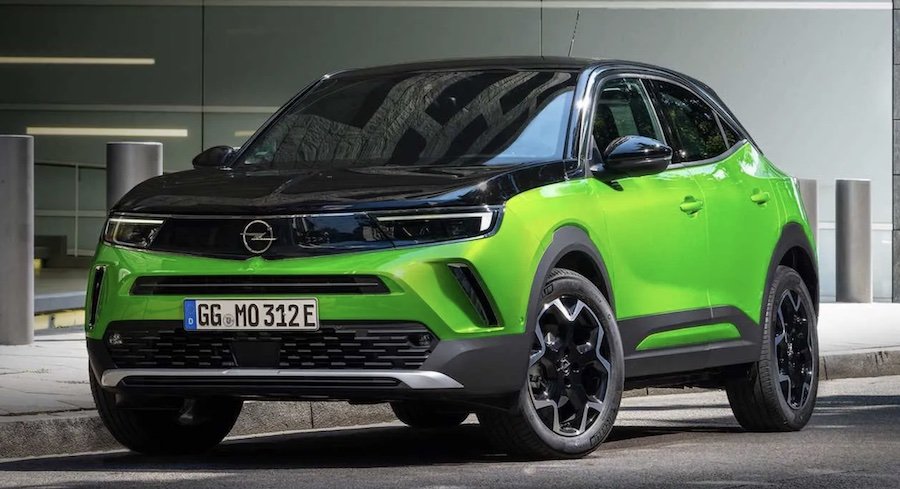2023 Opel Mokka Electric Revealed With More Power And Bigger Battery

Stellantis has pledged to go purely electric in Europe by the end of the decade, and to get there, it's trying to lure in more buyers by gradually curing range anxiety. The Peugeot E-308 was introduced in September before the equivalent Astra Electric late last month, with both featuring a 54-kWh battery. With a usable capacity of 51 kWh, the lithium-ion pack is now being installed in the Mokka Electric for the 2023 model year.
Courtesy of the bigger battery, the electric subcompact crossover's range has increased from the previous 338 to 406 kilometers (210 to 252 miles) in the WLTP cycle, representing a 20 percent boost. It takes about half an hour to recharge the battery to 80 percent provided you're using a 100-kW DC station. Interestingly, energy consumption has decreased to 15.2 kWh per 100 kilometers (62 miles).
It should be mentioned the range is slightly less than the aforementioned E-308 (400 km or 250 miles) and Astra Electric (416 km or 258 miles). With Peugeot upgrading the battery pack of the E-208, it's only a matter of time before the corresponding Corsa will receive the extra juice. Spy shots have revealed the supermini will receive a mid-cycle facelift, which will likely come along with the superior battery.
Getting back to the Mokka Electric at hand, it gets a more powerful front-mounted electric motor delivering 156 horsepower (115 kilowatts) and an instant torque of 260 Newton-meters (191 pound-feet). Taken from the Astra Electric, the e-motor has enough punch for a 0 to 62 mph (100 km/h) in less than 10 seconds and an electronically governed top speed of 93 mph (150 km/h).
In case you haven't noticed already, Opel is changing the car's name. Going forward, it'll be known as Mokka Electric rather than Mokka-e. That brings it in line with the recently introduced Astra Electric and logic tells us the Corsa-e will also be renamed Corsa Electric with its impending facelift.
Related News
